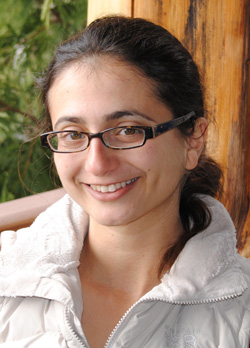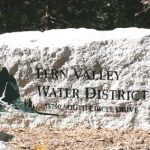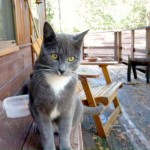
Warren is a 2013 graduate of Yale University’s School of Forestry and Environmental Studies. She has been an ecology and biology geek since grade school, she said proudly.
“We [she and her parents] lived 25 miles from Portland [Ore.]. I played in the woods for hours,” she said describing childhood. “I lived among the Douglas fir and cedars.”
While young she was aware of the forested areas being converted to housing and the distant Portland suburbs relentlessly expanding and creeping closer. “It’s probably how I got interested in ecology as a 6-year-old. I asked if any of this will be left,” she said.
Now she brings her skill, analytic tools and natural desire to Southern California. It’s almost a homecoming. Although she grew up in Oregon, her parents were from Los Angeles and Warren has some family in the region.
She earned her bachelor’s degree at the University of Washington, which is in Seattle. And she spent several years in the world of international environmental studies before attending Yale. Her natural science bent, combined with her international inclinations, led her to learning Chinese (she also knows some Spanish and Japanese), which results in her brief tenure in environmental diplomacy.
She worked at the World Resources Institute, an environmental think tank, where she studied and did research on climate and energy issues. This opened doors to an 18-month stint at the State Department’s Office of Global Change.
Warren and the former District Forester Hal Carey, have a unique complementary career path. He left the Hill to work on international forestry projects. She comes to the Hill from the international world and seeks to apply those ideas on the ground — back home in the West.
In her brief time in the district, Warren has been working in the field preparing for fuel maintenance and pile burns.
“We have an interesting and varied ecology here,” she observed. “Different pests competing with human use. It’s a diverse habitat, I love it — applied ecology!” She describes her forestry work on the district as a “big puzzle — 3D puzzle,” with an end goal of maintaining and ensuring a healthy forest.
She emphasized she solves puzzles by thinking broadly, thinking at the landscape level, and observing how the parts fit together. And the new puzzle piece, which she will confront later this year, is the Goldspotted oak borer.
She is hoping that residents who have taken the training to spot and identify the GSOB’s presence will help create a map of its location and path. Then the public land managers may employ monitoring traps to continue to watch the pest’s habitat.
“We’re in the triage stage now,” Warren said.











Welcome Kayanna! Hope you love it as much up here as we do!
Best,
Linda